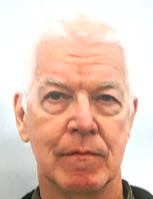Making the Impossible Possible
If you think about it, I think you will agree that as the world is now organized, it is essentially impossible to stop corruption, for at least two solid reasons. The first is poverty. One solid result of corruption research is that corruption goes with poverty. You can confirm this for yourself by looking at any of the rankings of countries from least corrupt to most corrupt published by Transparency International. The ranking from least corrupt to most corrupt is similar to a ranking from richest to poorest. Cultures of corruption have been deeply entrenched for many generations in places where a police officer can survive on a tiny salary on only because the badge is a license to take bribes. (See Note Three)
The second reason why it is now impossible to stop corruption is that individuals, throughout history and especially now when money is the measure of all things, are tempted to sin all by themselves and are quite capable of it. Frequently the press reports ingenious scams pulled off by high income crooks; sometimes their crimes are the sources of their wealth. It happens that the human being is an animal with secret thoughts. Other people do not know what evils lurk unseen in the invisible caverns deep in the human soul. There used to be a clear remedy for the invisibility of idiosyncratic violent ruminations: Nobody knew. But God knew. You can hide your evil thoughts from humans but not from a God who knows the secrets of hearts and kidneys.(5) This remedy appears to be increasingly ineffective in the mainstream society that is in deep trouble today.(6)
But consider non-modern and non-western cultures. Unbind your mind. Brainstorm. Consider that the number of ways to solve any problem is limitless. Many of them lie forgotten in the past and many will be invented in the future.
Consider Plato and Aristotle. Their books on ethics and politics and education are all about how to form good citizens. Aristotle says that a well-educated person has formed good habits that result in a good character; a well-educated child becomes an adult who finds pleasure in virtue and finds no pleasure in vice; and, moreover -surprise, surprise- finds happiness. If you directly seek happiness you will not find it; but if you seek to be a good person, happiness will find you. Or take Plato. Plato too starts early. Little kids like to run around and make noise. Therefore, their first education should be dancing and singing. The purpose of teaching them dances and songs is to start early bringing order to their souls.
Many traditional people of Africa started even earlier. Before the baby was even born the mother composed a song for the unborn child in her womb. At birth, the grandparents were the first to hold the new-born, because the new-born had just arrived from the spirit world where the grandparents are about to go.
Education and upbringing, ceremonies and relationships, can be designed to form a society where there would not be anybody who thought only of benefits and costs to himself, not caring about others; there would not be anybody whose only question about the customs of the community was whether he or she could get away with breaking them. This is not an imaginary example. Before 1600 traditional cultures governed southern Africa. It was individualism that was unknown.
Diverse spiritual paths explore in diverse ways the issues of the inner secret life, the life unseen by strangers who pass you on the sidewalk or in the parking lot. They range from Hindu practices thousands of years old, to the latest therapy groups for recovering addicts and for victims and/or perpetrators of sexual abuse, inspired by up to the minute research. They all do inner work cleansing the soul step by step; they all bring a sense of connection with something larger than oneself; they all make virtues stronger and vices weaker. Does it not seem likely that cultures where it would be expected that everybody would be following some spiritual path or other would be one more likely than today �s dominant hyper-individualism to pull people together and successfully surmount the complex of crises that threaten humanity with chaos and extinction?
1 A, T. Beck, Prisoners of Hate. New York: Harper Collins, 1999. For example, p.138. See generally John C. Gibbs, Moral Development and Reality. Oxford: Oxford University Press, 2017, especially chapter seven.
2 Gary Becker. Prize Lecture. Lecture to the memory of Alfred Nobel, December 9, 1992. The Economic Way of Looking at Life. .nobelprize.org/uploads/2018/06/becker-lecture.pdf
3 Ray Fisman and Miriam Golden (2017) Corruption (What Everybody Needs to Know). Oxford: Oxford University  �s
4 Consider the methodological critiques of a series of studies using Becker-like methodologies in Nancy Hartsock, Money, Sex and Power, Boston: Northeastern University Press, 1985. And consider Elinor Ostrom, Governing the Commons. Cambridge: Cambridge University Press 1990.
5 For example, 1 Samuel 16:7; Matthew 6:4
6 Douglas Porpora et al, Post Ethical Society: The Moral Failure of the Secular, Chicago: University of Chicago Press 2013,
(Note: You can view every article as one long page if you sign up as an Advocate Member, or higher).





